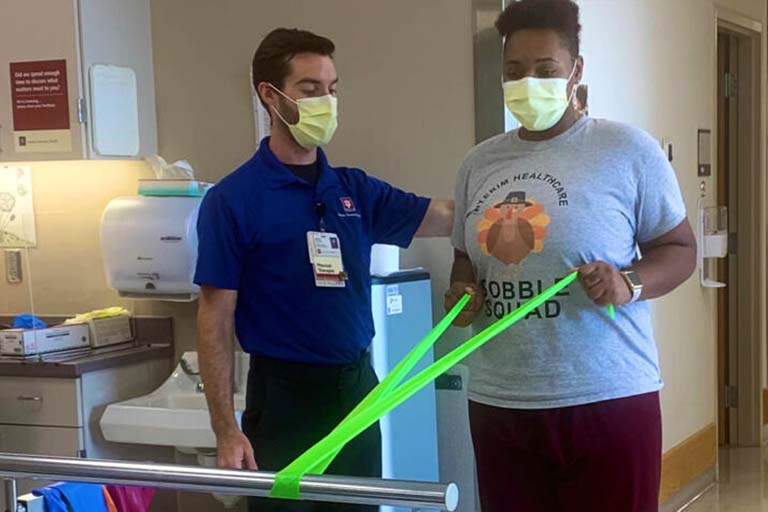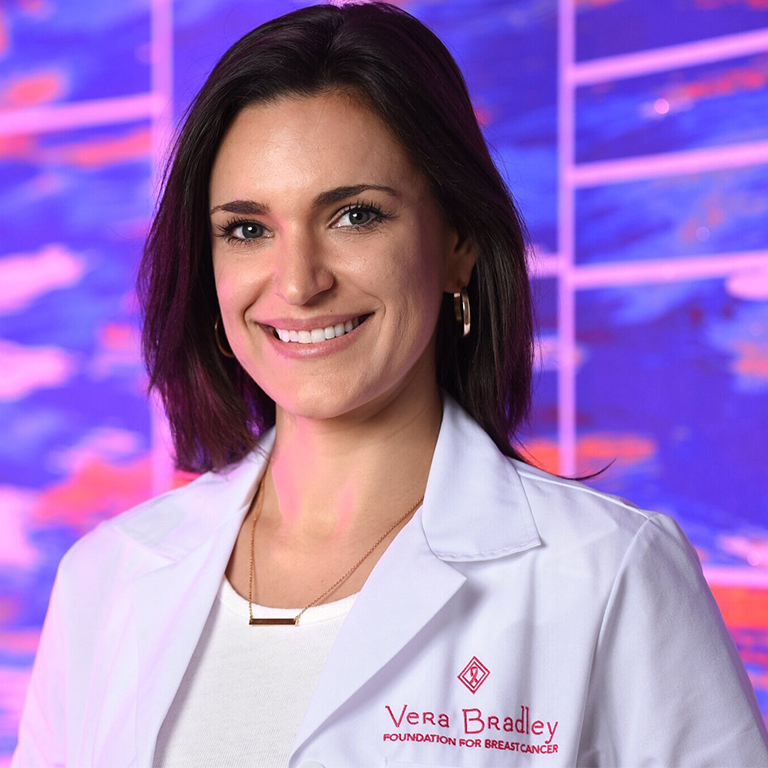Target: Muscle toxicity
Another important part of survivorship is musculoskeletal health. Muscle and fat may impact not only quality of life and physical function, but also survival.
Vera Bradley Foundation Scholar in Breast Cancer Research Tarah Ballinger, MD, is studying women who take aromatase inhibitors—drugs that keep estrogen-hungry tumors from developing. Joint pain and muscle weakness force many patients to stop taking the medicine.
Dr. Ballinger’s project focuses on the cellular mechanisms of such toxicities. Patients are donating muscle biopsies and participating in exercise strength testing. As part of the research, they receive low-intensity vibration by standing on a platform at home.







